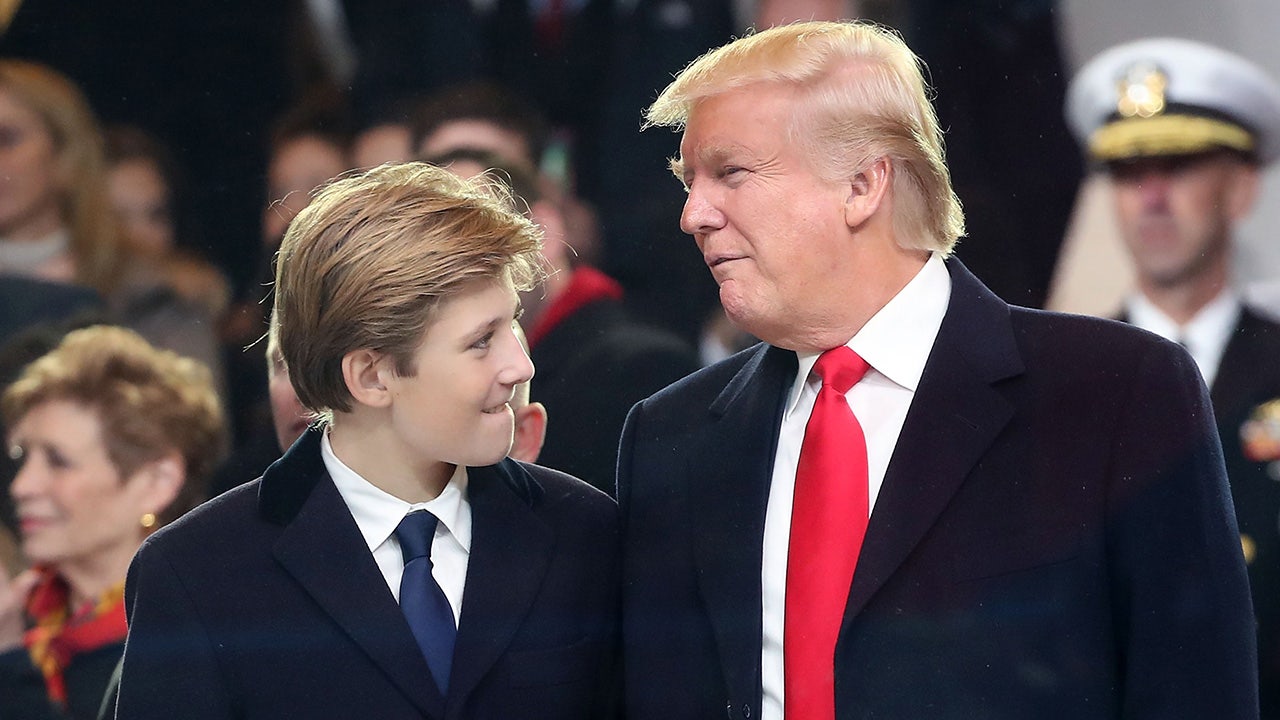World
Argentines protest against new austerity measures

The president has said that the austerity measures are due to years of overspending that have resulted in huge debts.
Argentine unions have begun a 12-hour strike in the capital to protest against tough economic reforms by President Javier Milei.
Wednesday’s demonstration is the most significant show of opposition to Milei’s spending cuts and privatisation plans since he took office last month and pledged to fix an economy dealing with 211 percent inflation.
The strike, coordinated by the umbrella union, the General Confederation of Labour (CGT), comes amid scrutiny of Milei’s two significant reforms: the “omnibus” bill going through Congress and a “mega-decree” deregulating the economy.
“Milei wants a country where poverty and informal work reaches 90 percent,” union member and national opposition deputy Hugo Yasky said on local radio station Radio Con Vos.
“Now there is no job creation. What there is now is widespread misery, people’s desperation, there are no measures to mitigate the damage they are causing.”
Earlier on Wednesday, the omnibus bill was approved by a committee in the lower congressional house, the Chamber of Deputies.
The mass strikes began at 12pm (15:00 GMT) and affected transportation, banks, hospitals, and public services.
Local airlines said they had been forced to cancel hundreds of fights due to the demonstration.
Protesters held placards that read “The homeland is not for sale” and “Eating is not a privilege” as some others held a giant puppet of Milei.
Another poster said, “Today’s retirees are yesterday’s workers, stop robbing them!”
Al Jazeera’s Lucia Newman, reporting from Buenos Aires, said it was “impossible” to determine the number of people attending the protest due to its scale.
“There seems to be a kind of unofficial agreement with the strikers and the security minister to allow these huge numbers of people to be here but only if they cannot disrupt traffic,” Newman said.
“It’s still very, very tense, and it’s an ongoing situation here, but it’s a huge turnout so far.”
Milei’s government said that the austerity measures are due to years of overspending that have left the South American country with huge debts to local and international creditors, including a $44bn deal with the International Monetary Fund.
“There is no strike that stops us, there is no threat that intimidates us,” Milei’s security minister and former presidential election rival Patricia Bullrich wrote on X.
“It’s mafia unionists, poverty managers, complicit judges and corrupt politicians, all defending their privileges, resisting the change that society chose democratically.”
Milei, an economist and former TV pundit, assumed the presidency after a shock win in last year’s general election.

World
Zendaya’s Stylist Law Roach Names Designers Who Refused to Dress Her on Red Carpets, Including Dior and Gucci: ‘If You Say No, It’ll Be Forever’

Stylist Law Roach revealed on “The Cutting Room Floor” podcast that Zendaya still hasn’t worn looks from five fashion houses after they refused to dress her early in her career.
“I would write the big five. I would write Saint Laurent, Chanel, Gucci, Valentino, Dior, and they would all say, ‘No, try again next year. She’s too green. She’s not on our calendar,’” Roach said during the interview.
“I still have the receipts,” he continued. “By the time she got to [the cover of] American Vogue [in 2017], she still had never worn any of those designers. She still hasn’t.”
Roach, who has styled the “Challengers” and “Dune” star since she was 14, clarified that Zendaya has worn designs by the “big five” in editorial shoots, but never in public or during red carpet appearances.
“She still has never worn Dior on a carpet. She still has never worn Chanel on a carpet. She has still never worn Gucci on a carpet — any press, any appearance, never. Never,” Roach said. “The first time she wore Valentino in public is when she had a contract.”
He continued, “When I said, ‘If you say no, it’ll be a no forever,’ that rang true for a long, long time.”
Despite announcing his retirement from celebrity styling over a year ago, Roach continues to work with Zendaya. He most recently styled Zendaya for this year’s Met Gala, where she served as one of the event’s co-chairs. After initially arriving in a custom Maison Margiela gown by John Galliano, Zendaya made a surprise second appearance on the Met Gala carpet in an archival Givenchy look — also by Galliano.
World
Biden's arms embargo on Israel 'emboldens' Hamas missile strikes against Jewish state

JERUSALEM—After President Biden gave his ultimatum of withholding offensive weapons to the Jewish state if Israel were to launch an invasion of Rafah, rocket attacks rained down on Israel on Friday from Rafah, with more rockets fired on Saturday.
Hamas launched rockets from Rafah at the southern Israeli city of Beersheva on Friday for the first time since December, as Iranian proxy Hezbollah sent a barrage of rockets into the northern Israel city of Kiryat Shmona, causing a massive fire. Within the Gaza Strip on Friday, four Israeli soldiers were killed.
“When administration officials attacked or berated Israel publicly previously during the war, Hamas hardened its demands in return for releasing hostages, in fact delaying and minimizing the chances of success of the delicate negotiation,” Jonathan Conricus told Fox News Digital. Conricus served in the Israel Defense Forces (IDF) for 24 years as a combat commander in Lebanon and the Gaza Strip.
UN, HUMAN RIGHTS, MEDIA GROUPS RELY ON HAMAS DEATH TOLL IN ‘SYSTEMATIC DECEPTION’: EXPERT
The aftermath of a Hezbollah rocket barrage in the northern Israeli city of Kiryat Shmona on May 10, 2024. Credit Erez Bar Simon/TPS-IL (Erez Bar Simon/TPS-IL)
“When Israel’s enemies detect tension between the U.S. and its most loyal and steadfast ally in the region, Israel, it emboldens them to attack Israel more and continue with their tactics of using human shields, since they understand that the U.S. will eventually punish Israel for defending itself, regardless of Hamas and Hezbollah’s actions.”
Conricus, who served as an IDF spokesman during the Gaza war and is now a senior fellow at the Foundation for Defense of Democracies added, “In the short term, these American statements will lead to enhanced violence and fighting, since they embolden Israel’s enemies. In the long term, they may push another American Middle Eastern ally away from the U.S. sphere of influence, and reinforce concerns harbored by many U.S. partners about the quality and steadfastness of U.S. support when needed the most.”

On Friday the IDF said that “five launches were identified crossing from central Gaza toward the area of Beersheva.” Nine additional launches were identified crossing from the area of Rafah toward the city and fell in open areas, the IDF stated. (Screenshot: IDF Spokesman’s Unit.) (IDF Spokesman’s Unit)
America’s former Ambassador to Israel during the Trump administration, David Friedman, posted a blunt message on X about the new Biden policy: “Hamas now firing rockets from Rafah into Beersheva — Israel’s largest southern city. Why wouldn’t they? — they have no fear of a reprisal. Biden has emboldened Hamas!”
Fox News Digital reported that many Israelis view Biden’s pause of weapons deliveries to be a betrayal of his assurance that he backs the Jewish state with an “ironclad” security promise.
Gen. Jack Keane (Ret.) told Fox & Friends on Friday that Biden is “walking away from Israel,” and called Biden’s decision “stunning.”
The enemies of Israel and America are closely watching Biden’s decision to reportedly create daylight between the U.S. and the Mideast’s only democracy, Israel.
WORLD HEALTH ORGANIZATION SILENT OVER HAMAS’ USE OF GAZA HOSPITAL AS TERROR HQ

IDF forces stand ready in southern Israel near the Gaza border for a possible ground offensive in Gaza’s southernmost city of Rafah to continue fighting Hamas and disbanding its battalions. Southern Israel, May 1, 2024. Photo by Noam Shaar/TPS (Photo by Noam Shaar/TPS)
On Thursday, John Kirby, the White House National Security Communications Adviser, said the U.S. was fully behind Israel. “The arguments that somehow we’re walking away from Israel fly in the face of the facts. I mean, this is a president who visited Israel within days of the October 7th attacks. This is a president who rushed additional military articles to Israel and, frankly, provided expertise from our own military to go over there to help them as they thought through their planning and their operation,” he told reporters at the White House.
Kirby continued “this is a president who put American pilots — fighter pilots — in the sky to help shoot down more than 300 missiles and drones fired by Iran in . . . mid-April. So the argument that somehow we’re walking away from Israel, we’re not willing to help them defeat Hamas just doesn’t . . . comport with the facts.”
Matthew Levitt, the director of the Reinhard Program on Counterterrorism and Intelligence at The Washington Institute, told Fox News Digital, “By default, working arms before hostages—including U.S. hostages—are released, and after Hamas’ bad faith behavior in negotiations, could embolden both Hamas and Hezbollah.”
Hamas has over 100 hostages in its captivity, including Americans. The terrorist mastermind behind Hamas’ massacre of nearly 1,200 people, including over 30 Americans, Yahya Sinwar is believed to be using hostages as human shields to hold off Israeli soldiers seeking to capture him in a tunnel deep below Gaza.

Palestinian Hamas terrorists are seen during a military show in the Bani Suheila district on July 20, 2017, in Gaza City, Gaza. A protester at Stanford University with a headband similar to the one worn by Hamas members was seen on an image submitted to the FBI. (Chris McGrath/Getty Images)
The State Department did not answer questions about whether Biden’s blockage of offensive weapons to Israel emboldens Hamas and Hezbollah.
On Thursday, spokesman Matthew Miller said, “What the President made clear is that we have concerns about a potential military operation in Rafah. I don’t think that’s any secret. We’ve been making those concerns known publicly, and we have made those concerns quite clear to the Government of Israel. And as the President noted, there are certain types of military assistance that we will not make available to Israel for use in a campaign in Rafah,” said Miller.
The Jewish Institute for National Security of America (JINSA) published a letter from a who’s who of retired U.S. military leaders, criticizing Biden’s arms directive. “Amid surging antisemitism in America and the world, following the largest one-day loss of innocent Jewish life since the Holocaust, U.S. support for the only Jewish state should be clear, unwavering, and not conditioned. The benefits of this partnership for the American people and this important region are many, and too valuable to forsake.”

President Biden in between a photo of an IDF tank and Israeli PM Benjamin Netanyahu (AP, Getty Images)
The letter added: “America must support Israel as it restores its security, shattered on October 7, against Iran and its terrorist proxies in Gaza, Lebanon, Syria, Iraq, and Yemen that all seek to destroy the Jewish state. These forces are also enemies of the United States and everything we stand for.
“This Iranian-backed axis of terror, as well as other adversaries and allies around the world, are watching closely to see whether the United States will stand by one of its closest allies fighting in self-defense, even when the going gets tough.”
Richard Goldberg, a senior adviser at the Foundation for Defense of Democracies and former National Security Council official, warned, “There’s zero doubt that Iran and Hezbollah are going to escalate the longer this illegitimate embargo drags on. Our shared enemies feed on the perception of space between the United States and Israel, and the projection of weakness and desperation in both capitals.”
Fox News Digital press queries to the White House and Israel’s Ministry of Foreign Affairs and Prime Minister’s Office were not immediately returned.
World
Xi's European tour: Some euro, no vision

The opinions expressed in this article are those of the author and do not represent in any way the editorial position of Euronews.
For China to revive its fortunes, it must fundamentally change course, abandoning its version of predatory state capitalism in favour of the genuine market reforms its trade partners worldwide are calling for, Elaine Dezenski writes.
Xi Jinping arrived in Europe earlier this week lugging some heavy economic baggage.
With foreign direct investment into China plunging 82% to just $33 billion (€30.5bn) in 2023 — a three-decade low — one might have expected Xi’s tour to be a full-fledged charm offensive aimed at wooing back skittish European investors and businesses.
However, the authoritarian leader’s trip was anything but charming.
Rather than candidly address the headwinds battering China’s economy and appease anxious trading partners, Xi doubled down on the same tone deaf tactics that have defined his authoritarian rule for over a decade.
Cosying up to the like-minded regimes in Hungary and Serbia, Xi offered limited compromises on China’s aggressive trade practices. This hardline posture underscores Xi’s fundamental inability to relate to major market economies as an equal partner respecting fair competition.
For China, the results have been disastrous. The fact that the US has now surpassed China as Germany’s largest trading partner lays bare the costs of Xi’s inflexible approach.
Germany has been one of China’s more reliable European partners — this shift, however, shows the extent of Europe’s growing rejection of China’s hegemonic ambitions.
A bad call at a bad time
With a looming demographic crisis at home and a faltering real estate sector, China needs its top export markets — the US and Europe — more than ever. But authoritarians don’t make a habit of offering concessions or leading with a spirit of compromise.
Xi had a prime opportunity on this European tour to chart a new course, one oriented around economic liberalisation, market reforms, supply chain transparency, and fair competition.
Instead, he chose the path of confrontation towards vital European trading partners while cosying up to Europe’s authoritarian eastern flank.
This represents an untimely miscalculation. By ignoring the reasonable concerns of Europe’s leading economies, Xi has squandered an opportunity to help stave off potential economic implosion at home.
Foreign capital will continue fleeing, spooked investors won’t return, and European markets will become increasingly inaccessible so long as Beijing maintains its predatory trade practices.
Respect the rules of the market you need
The reality is that while China’s domestic market remains important, the number of foreign firms deriving profits there appears to be shrinking.
According to a report from the McKinsey Global Institute, multinational corporations’ “share of all revenues earned in China declined from 16% to 10% from 2006 to 2020.”
For many, the Chinese market has become an empty promise. The European Union Chamber of Commerce in China’s latest survey shows record-low business confidence in the Chinese market.
In fact, a record share of respondents doubted their profitability in China. In the US, as well, less than half of companies responding to an American Chamber of Commerce in China survey indicated they expect to be profitable in 2024.
Xi had an opportunity to change the tides with respect to investment in China. He could have addressed the pressing needs of his European trading partners with humility and opened the door to renewed economic cooperation.
Unfortunately for the Chinese people, returning to robust commerce with Europe and North America’s major economies would require the flexibility and respect for market principles that Xi’s authoritarian mindset renders him incapable of delivering.
With foreign capital fleeing, property values falling, youth unemployment surging, and indebtedness soaring, China is in desperate need of a win for its export-driven economy.
The status quo won’t fly any more
On this trip, European Commission President Ursula von der Leyen bluntly conveyed the EU’s demands for fair economic competition with China and its willingness to robustly defend its interests against Beijing’s unfair trade practices.
In response, Xi bluntly denied the basis for Europe’s concerns, claiming, “The so-called ‘problem of China’s overcapacity’ does not exist, either from the perspective of comparative advantage or in light of global demand.”
This builds on the ES’s 2019 designation of China as a “systemic rival” and should be understood in China for what it is: a clear warning that the status quo is no longer acceptable.
By doubling down on authoritarian belligerence, Xi demonstrated a lack of vision for productive European engagement.
For China to revive its fortunes, it must fundamentally change course, abandoning its version of predatory state capitalism in favour of the genuine market reforms its trade partners worldwide are calling for.
By ignoring Europe’s call for change, Xi has ensured darker economic days ahead for the Chinese people.
Elaine Dezenski is senior director and head of the Center on Economic and Financial Power at the Foundation for Defense of Democracies, a non-partisan think tank based in Washington, DC.
At Euronews, we believe all views matter. Contact us at view@euronews.com to send pitches or submissions and be part of the conversation.
-

 News1 week ago
News1 week agoPolice enter UCLA anti-war encampment; Arizona repeals Civil War-era abortion ban
-

 News1 week ago
News1 week agoSome Florida boaters seen on video dumping trash into ocean have been identified, officials say
-

 Politics1 week ago
Politics1 week agoThe White House has a new curator. Donna Hayashi Smith is the first Asian American to hold the post
-

 Education1 week ago
Education1 week agoVideo: President Biden Addresses Campus Protests
-
)
) Movie Reviews1 week ago
Movie Reviews1 week agoThe Idea of You Movie Review: Anne Hathaway’s honest performance makes the film stand out in a not so formulaic rom-com
-

 World1 week ago
World1 week agoUN, EU, US urge Georgia to halt ‘foreign agents’ bill as protests grow
-

 World1 week ago
World1 week agoIn the upcoming European elections, peace and security matter the most
-

 World1 week ago
World1 week agoArizona Senate repeals near-total 1864 abortion ban in divisive vote



















